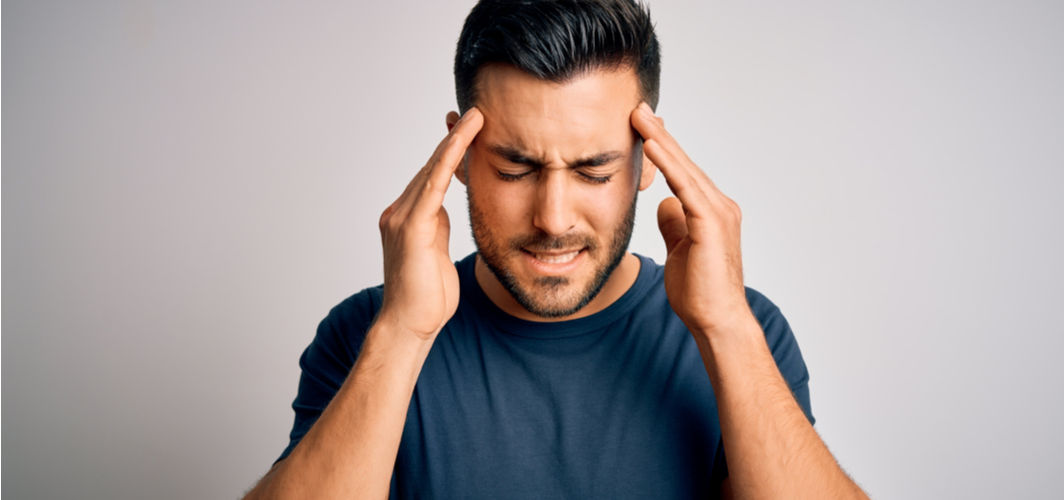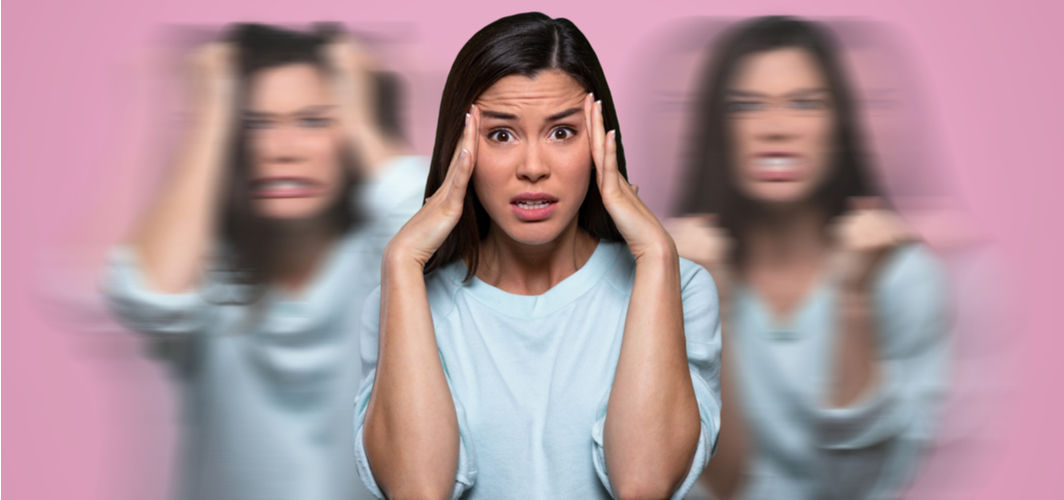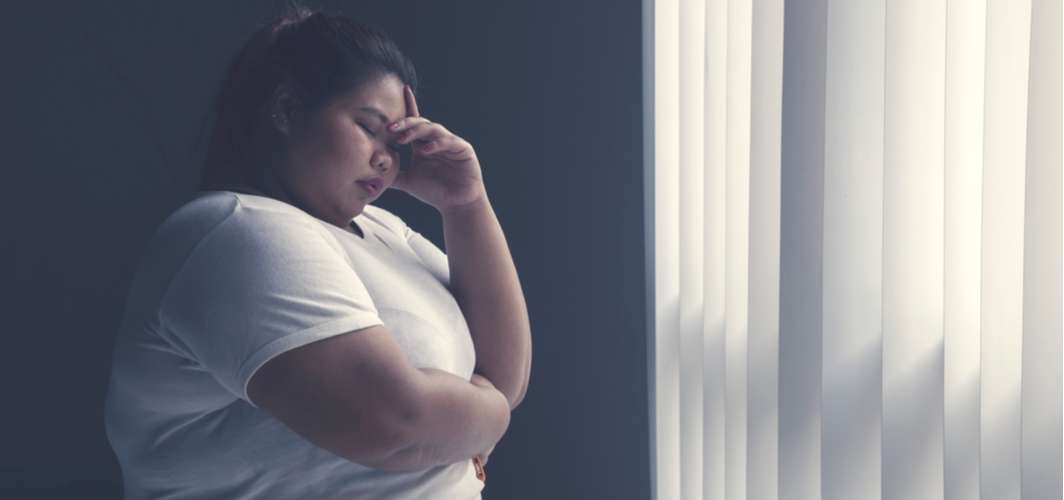Mental Health
When Should a Headache Worry You?
5 min read
By Apollo 24/7, Published on - 05 August 2021, Updated on - 30 October 2022
Share this article
2
21 likes

Almost everyone is familiar with and has experienced headaches, one of the most common health conditions that is characterized by a sharp, dull or throbbing pain occurring on either one or both sides of the head. Headaches can last for hours and sometimes even for days. Though most headaches are not serious and can be managed at home, recurring headaches must be reported to a medical expert for further investigation.
Types of headaches
The Harvard Medical School states that more than 300 types of headaches have been recognised by doctors so far, but only 10% of them have a known cause. Depending on the cause, headaches are mainly classified as primary and secondary headaches.
Primary headache:
Headaches without any underlying medical condition are included in primary headaches. These headaches can be disabling but are not life-threatening. Various contributing factors of primary headaches include muscle tension, exposure to certain foods or dehydration. Some of the most common types of primary headaches include:
-
- Tension headache
- Migraine
- Cluster headache
Secondary headache:
Secondary headache is usually associated with an underlying medical condition that triggers pain sensitive areas in the head and neck. These headaches can occur due to medical conditions such as high blood pressure, medication overuse, acute sinusitis (inflammation of the sinus), brain tumours, aneurysm, meningitis, and neck or brain injury.
Different manifestations of a headache
The intensity and frequency of a headache can vary depending on the type. The symptoms of headaches include:
1. Tension headache
- The intensity of the headache increases gradually
- Mild to moderate pain
- Pain on both sides of the head that can radiate to the back of the head or neck
- Dull pain that feels like a band around the head
- Does not cause nausea, vomiting, or sensitivity to light.
2. Migraine
- Pounding or throbbing pain either on one or both sides of the head
- Moderate to severe pain that can last for hours to days
- Blurred vision
- Sensitivity to light, noise or odours
- Nausea and vomiting
- Diarrhoea or abdominal pain.
3. Cluster headache
- Severe pain on only one side of the head (usually behind the eye)
- Headache occurs in series and may last weeks or months
- The affected eye becomes red and watery
- Droopy or swollen eyelid of the affected eye
- Intense pain with a burning or stabbing sensation
- Swollen forehead
- Runny nose or congestion.
4. Sinus headache
- Pain over the forehead, around the nose, eyes, cheeks and upper teeth.
- Pain increases on leaning forward
- Swollen face
- Thick nasal discharge
- Congestion
- Fever
- Bad taste in the mouth
- A feeling of fullness in the ears.
5. Headache due to medicine overuse
- Frequent headaches that last for days
- Severe pain in the morning
- Pain gets better once the use of medicines is stopped.
6. New daily persistent headaches
- Constant headache that lasts for more than three months
- Pain on both sides of the head
- Pain does not subside with over-the-counter medications.
7. Sex headache
- Dull pain in the head and neck, which increases with sexual excitement
- Sudden, sharp, throbbing headache that occurs before or at the moment of orgasm
- Pain can last for several minutes, hours or days.
Note: People experiencing any of these symptoms must consult a doctor for appropriate treatment.
Can headaches be managed at home?
The management of the condition aims at reducing the frequency and intensity of the headaches. Some of the ways of managing mild headaches include:
- Recognizing the triggers: One should recognize the triggers and avoid them to prevent episodes of headache. For instance, alcohol use and stress can trigger migraines and hence, should be avoided.
- Over-the-counter available painkillers: One can use non-prescription painkillers such as acetaminophen (paracetamol) and ibuprofen to relieve pain. However, overuse of these medications is not recommended.
- Reduce stress: Stress is one of the most common causes of headaches. Practise meditation, mindfulness, yoga, and tai chi to relieve stress.
- Biofeedback: Biofeedback is a technique that helps people identify and train the tensed areas of the body during a headache. During biofeedback, the experts connect sensors to the body and monitor the involuntary physical responses to headaches such as increased breathing and heart rate, temperature, and muscle tension.
- Proper sleep: Lack of sleep can trigger headaches. Thus, one should sleep for at least 7 to 8 hours a day to prevent headaches. Sleep in a quiet and cool room to ensure sound sleep.
- Stay physically active: Exercising regularly helps in reducing the intensity of the pain during a headache. One should practise moderate-intensity exercise such as brisk walking, swimming or cycling for at least half an hour regularly. People with an underlying medical condition must consult their doctor before starting any new physical activity.
Recommended Read: Health Tips to Manage Stress
When to consult a doctor?
Mild headaches can be managed at home by taking over-the-counter pain killer medications. However, some headaches may require prompt medical care. Signs that indicate the need for medical attention include:
- Unusually severe headache that prevents one from carrying out normal daily activities
- Experiencing a new type of headache after 50 years of age
- Getting three or more episodes of headache every week
- Headache that requires pain-relieving medications almost every day
- Headache that does not resolve even after taking 2 to 3 doses of over-the-counter medications
- Presence of other symptoms such as stiffness in the neck, fever, visual disturbances, slurred speech, weakness, numbness, confusion, forgetfulness or reduced alertness
- Headache after an accident or a head injury
- Headache with severe nausea and vomiting
- Presence of pain and tenderness near the temples along with headache
- Presence of painful red eye along with headache
- Headache after waking up
- Pain in the head that increases with coughing, sneezing or moving around
- A noticeable change in the personality or brain function.
Conclusion
An occasional headache is not a matter of concern for most as it can be managed with simple lifestyle changes, relaxation techniques, biofeedback, yoga, and over-the-counter medications. However, for some people, these headaches could be disabling, thus requiring immediate medical attention. People with severe or recurring headaches must consult their doctor for proper prevention and treatment plans. Avoiding the overuse of non-prescription medications is advisable as they can lead to health complications.
You can consult a general physician if you are suffering from recurrent headaches.
Mental Health
Leave Comment
Recommended for you

Mental Health
Could My Mood Swings Be a Sign of Bipolar Disorder?
Occasional mood swings can affect anyone. However, regular and extreme mood swings can indicate a mental illness such as bipolar disorder.

Mental Health
Alzheimer’s Disease: What Causes It And Can It Be Prevented?
While scientists continue to research the reason for the onset and progression of Alzheimer’s disease, there are some early signs which one should look out for.

Mental Health
Uncovering the Relationship Between Obesity and Depression
Recent research has highlighted that obesity can result in mental health disorders such as anxiety and depression.
Subscribe
Sign up for our free Health Library Daily Newsletter
Get doctor-approved health tips, news, and more.
Visual Stories

8 Must-try Herbal Teas to Relieve Stress and Lift Mood
Tap to continue exploring
Recommended for you

Mental Health
Could My Mood Swings Be a Sign of Bipolar Disorder?
Occasional mood swings can affect anyone. However, regular and extreme mood swings can indicate a mental illness such as bipolar disorder.

Mental Health
Alzheimer’s Disease: What Causes It And Can It Be Prevented?
While scientists continue to research the reason for the onset and progression of Alzheimer’s disease, there are some early signs which one should look out for.

Mental Health
Uncovering the Relationship Between Obesity and Depression
Recent research has highlighted that obesity can result in mental health disorders such as anxiety and depression.